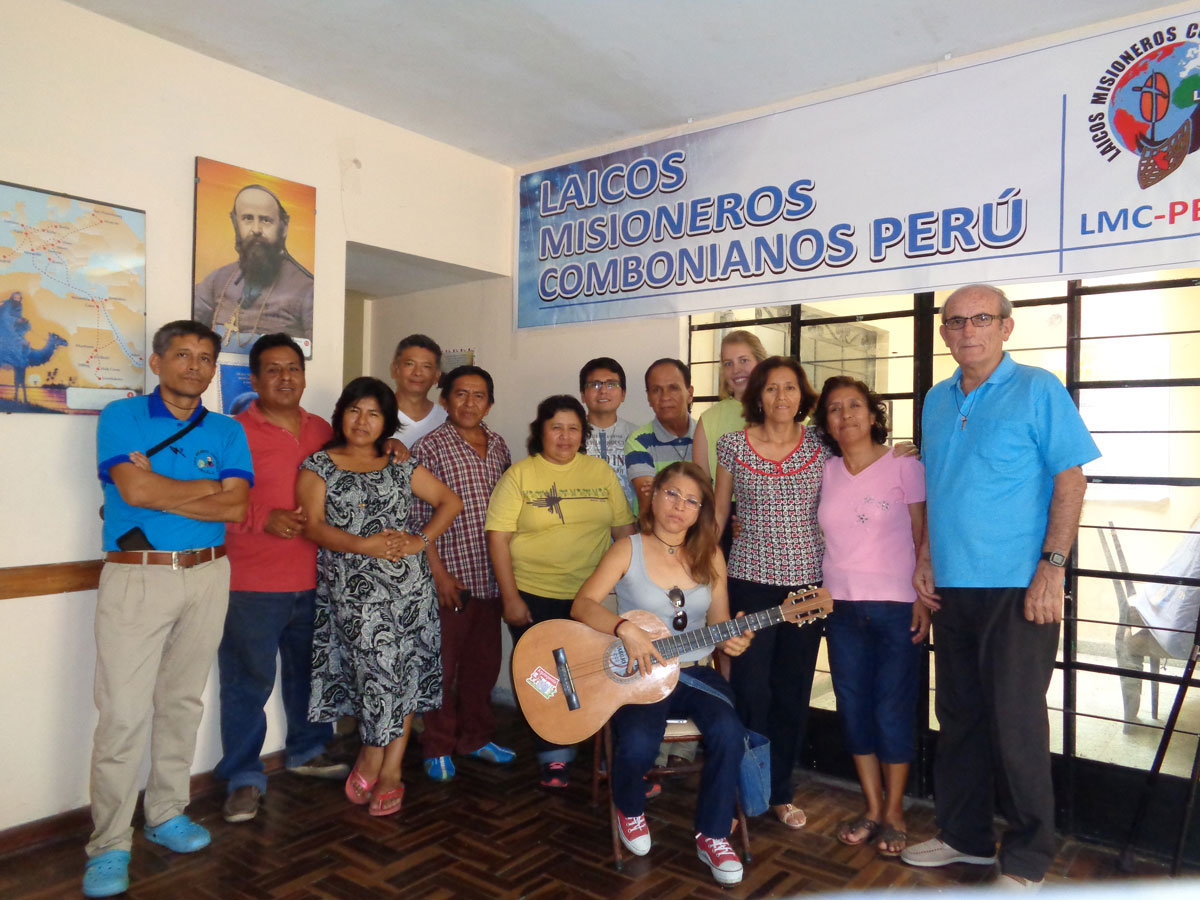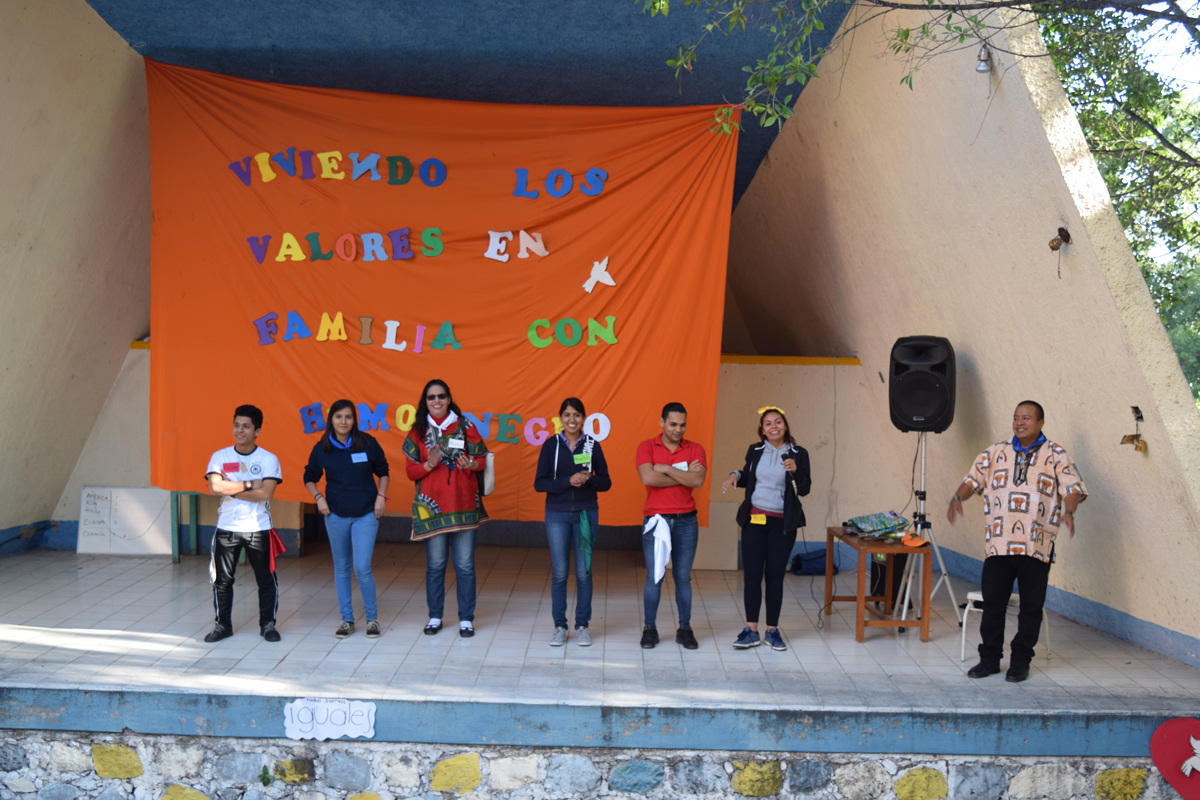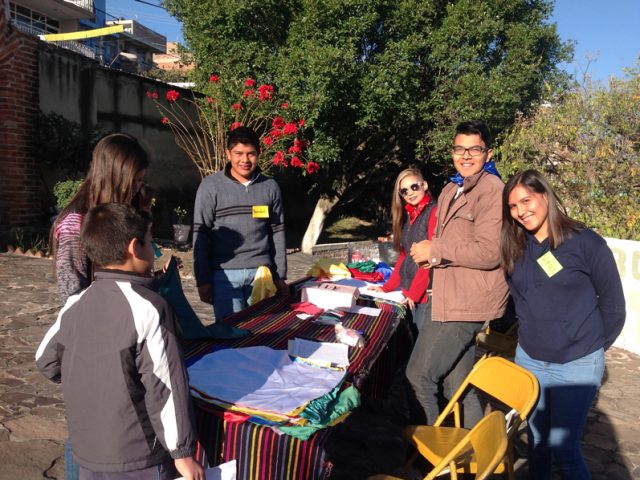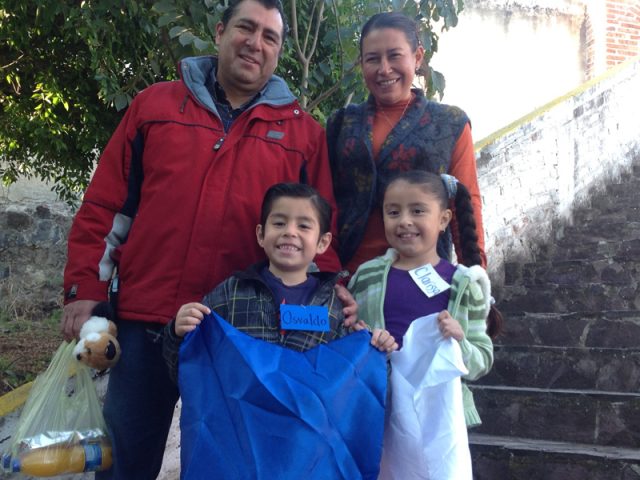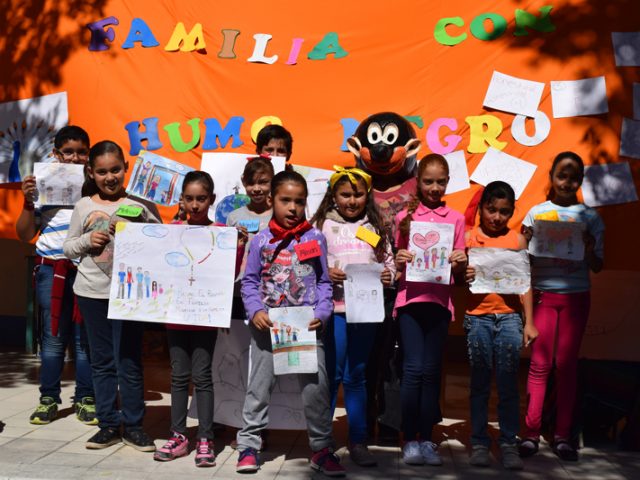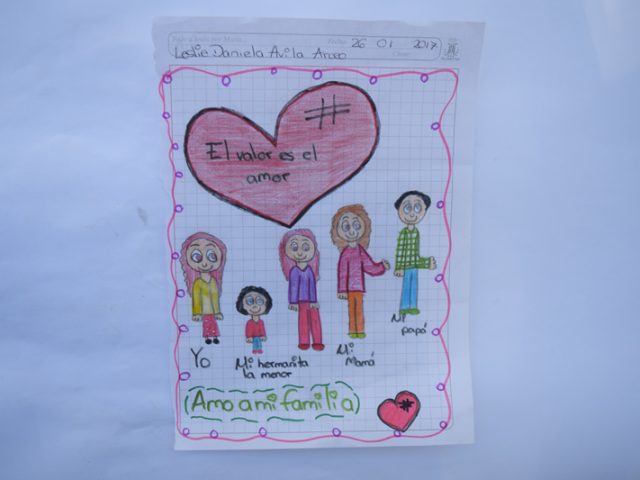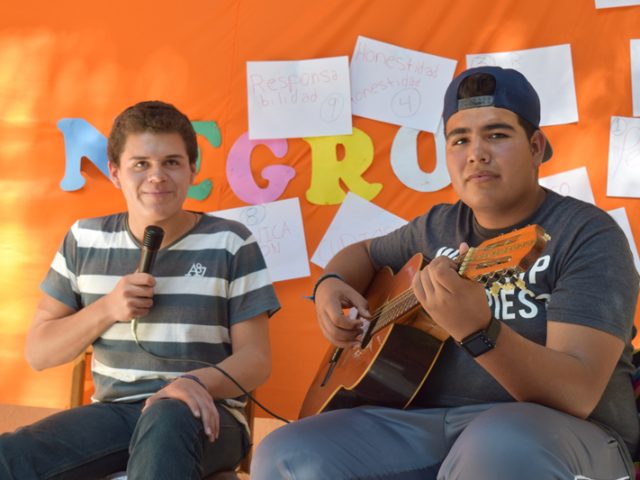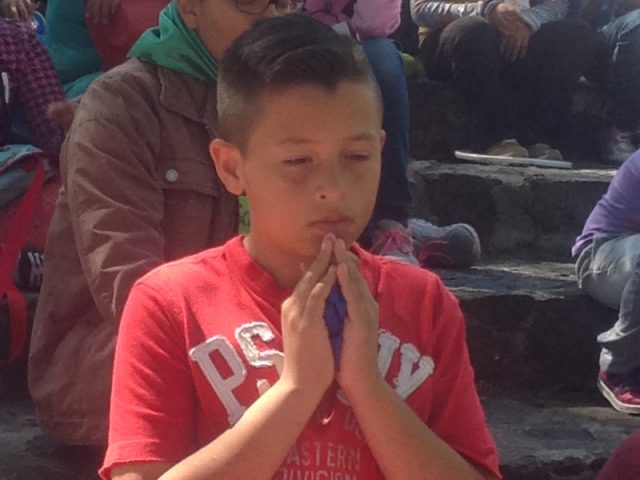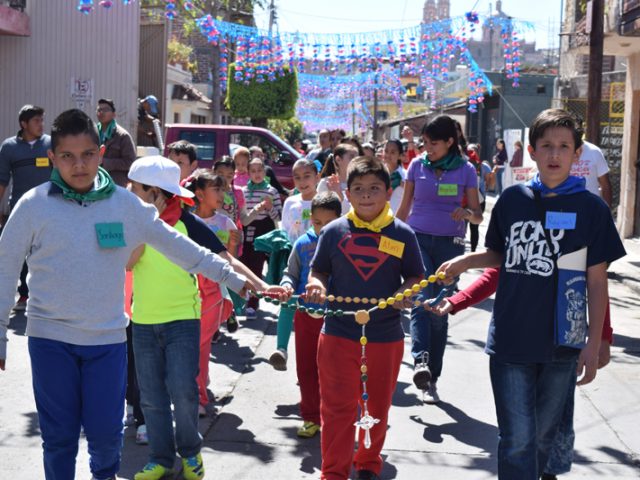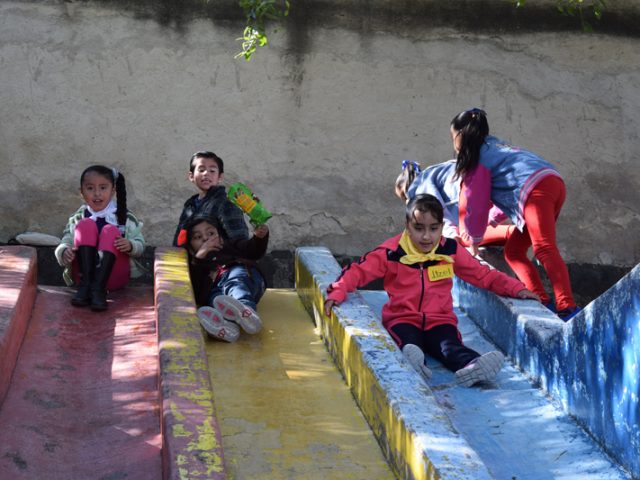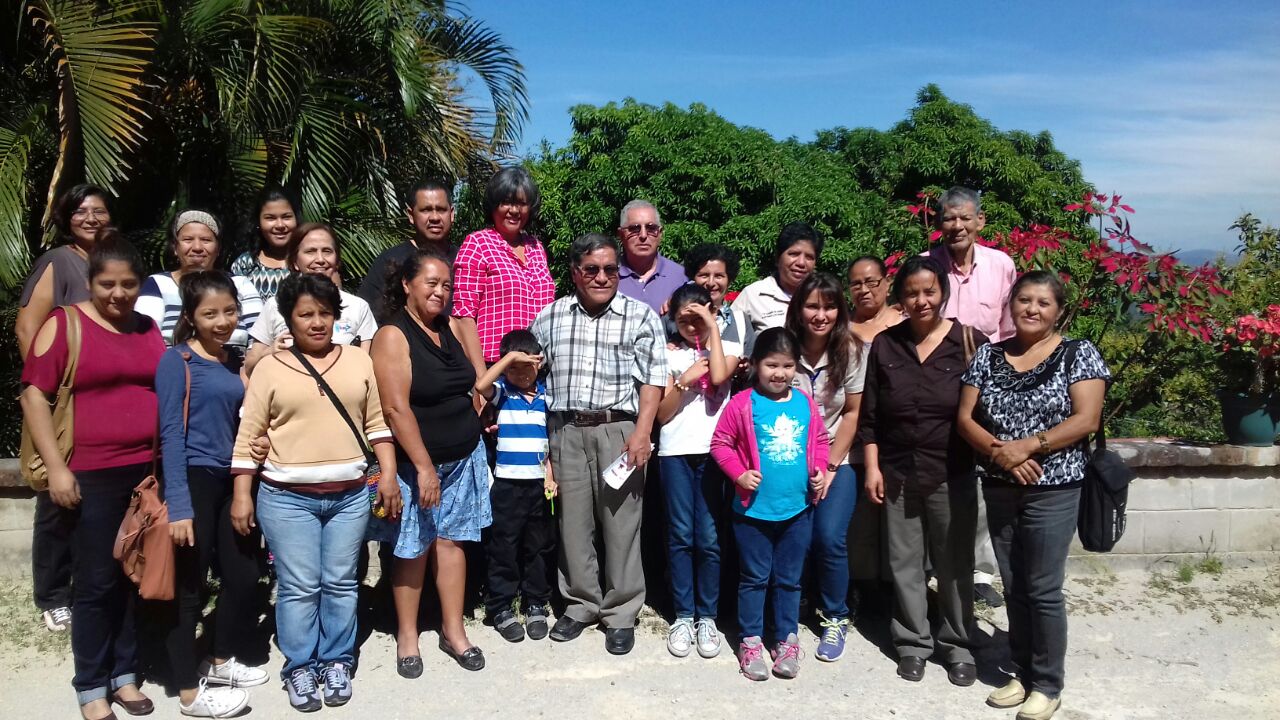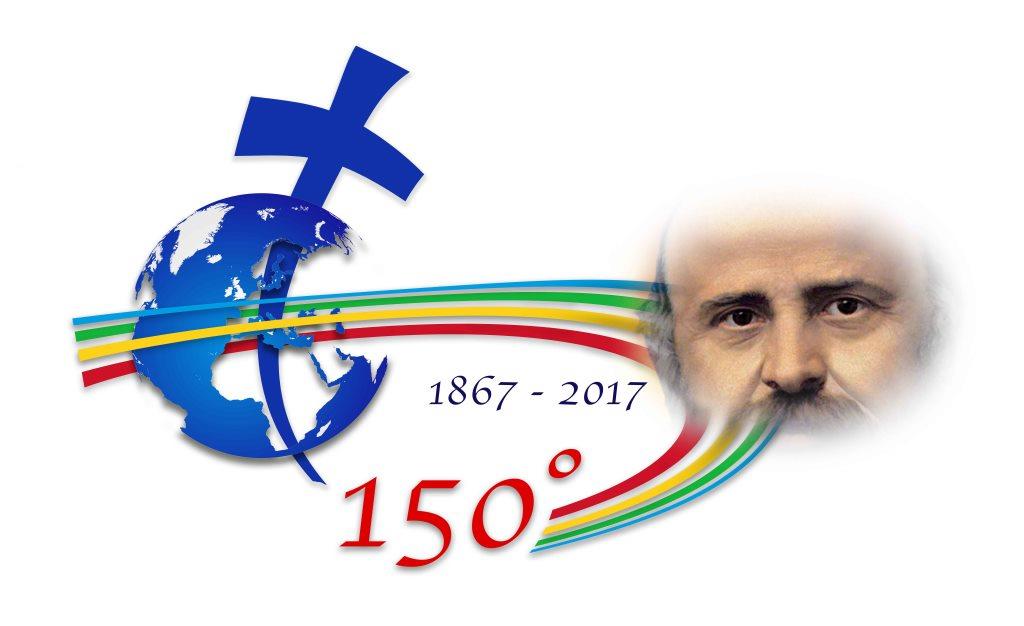 “The life of Daniel Comboni (1831-1881) – writes Fr. Fidel González Fernández, Comboni missionary – has a clear basic unity in which different aspects are entwined. But in this historical note we wish to fix our attention on Comboni, founder of “missionary institutes”, in the context of missionary institutes depending on Propaganda Fide. Comboni founds two missionary “Institutes”: a Seminary or missionary Institute for the African Missions (1867) and the Institute of the Devout Mothers of Africa” (1872), which enters the history of the “new institutes” of consecrated life that in the XIX century have a special innovative history. In the historical evolution of the Institute of the Comboni Missionaries we may clearly see three phases.”
“The life of Daniel Comboni (1831-1881) – writes Fr. Fidel González Fernández, Comboni missionary – has a clear basic unity in which different aspects are entwined. But in this historical note we wish to fix our attention on Comboni, founder of “missionary institutes”, in the context of missionary institutes depending on Propaganda Fide. Comboni founds two missionary “Institutes”: a Seminary or missionary Institute for the African Missions (1867) and the Institute of the Devout Mothers of Africa” (1872), which enters the history of the “new institutes” of consecrated life that in the XIX century have a special innovative history. In the historical evolution of the Institute of the Comboni Missionaries we may clearly see three phases.”
THE COMBONI INSTITUTE FOR THE AFRICAN MISSIONS IN ITS FIRST “SECULAR” STAGE
(Part One)
- The history of the mission and of the missionary Institutes under Propaganda Fide
The history of evangelisation begins the very day of Pentecost and progressively develops new forms in the history of the Church[1]. In the first centuries, Christianity spread “from experience to experience” (Ratzinger) and only in the fourth century would it assume progressively “organised” missionary forms. In the modern age, evangelisation assumes new forms, modalities and extent. We find, in fact, consecrated to the work of evangelisation among non-Christian people, ancient religious orders and new institutes that begin to be called “ad gentes missionary institutes”. The name and the concept of “missionary institute” are relatively modern in the history of the Church as is also the term “mission”. They were introduced after the founding of Propaganda Fide (1622), in the sense of ‘sent’ by the Pope to any part of the world whatever (the Jesuits and later on the Lazarists, Congregatio Missionum, 1625) for apostolic work among Catholics, a-Catholics and non-Christians (“evangelisation of peoples or ad gentes”).
Joseph Ratzinger in one of the final pages of his book Jesus of Nazareth, where he speaks of the “intermediate coming of the Lord” (between Bethlehem and the definitive Glory), says that that “coming” adopts many modalities, but there are some that “make the headlines”. He refers to the impact of some figures through whom Christ works in history. The Holy Spirit, by means of these figures, raises up in the Church movements that bear witness to the beauty of being Christians in times in which the tiredness of the faith becomes a sort of general pandemic. This is what happened in modern missionary history. Reflecting on the ad gentes missionary history of the Church during the epoch inaugurated with the founding of Propaganda Fide, one may point to many charismatic missionary figures who carried out this ad gentes missionary work. In founding the Congregation of Propaganda Fide, the Pope attributed to it the mission to establish the ministers necessary “to teach the Gospel and catholic Doctrine in all the missions”. Since it could not have missionaries of its own, the Congregation had to turn to the ancient religious orders. It was only after encountering serious difficulties in its appeal that Propaganda supported the birth of new missionary institutions under its jurisdiction. This is how the history of the “ad gentes” missionary institutes began.
On the one hand, Propaganda Fide could see the advantages the ancient religious orders could offer the missions but, on the other, could also see their shortcomings. These two aspects are underlined in a report of the Secretary of Propaganda, Alberizi, dated 4 November, 1657, which says that “the perversion of aims sometimes means that the religious seek first the glory of their own institutes, convinced that they are working for the glory of God”. Other shortcomings pointed out were the struggle between the different religious Orders, the little importance given to creating an indigenous clergy or the fact that they did not trust them sufficiently and their opposition to the appointment of bishops in the missions. The tendency was to “perpetuate itself” in territories through monopolising the missions there. Alberizi also mentioned the motive of poor results in evangelisation as well as the damage caused by the monopolies of some Orders and to the control of missionary activities by political entities to which the missionaries themselves were often tied. The report concludes with a direct reference to the recent founding of the Seminary for Foreign Missions in Paris (FMP) and to the Urbaniana College of Propaganda in Rome. There was now a new reality in the life of the Church – that of the “secular” missionary Institutes”[2]. This is the point of entry of the initiative of various missionaries, one of whom was Daniel Comboni, to found Missionary Seminaries or Institutes (the terminology was still very inexact and the juridical figure of such foundations would only find a clear physiognomy towards the end of the XIX century). In the eighteen hundreds, it was not possible to found other religious Orders according to the model of the ancient Orders because it was not allowed either from the canonical point of view or by the liberal civil laws of the time. With the French Revolution there also began a new epochal stage in the history of the Church and of consecrated apostolic life. The missionary history of the Church was going through a deep crisis and many ecclesial institutions were diminishing (some even disappeared), but many new apostolic foundations, still seeking their own juridical form, were springing up.
The collapse of the Ancient Regime and the unhinging of the old society of social “states”, followed by the establishment of the new liberal society with its social “classes” and national political units overwhelmed the old cultural, social and political order and, with them, also the ecclesiastical order. In this society dominated by liberalism, many old ecclesiastical structures disappear or are even swept away by the dominant ideology. The life of the ancient Orders struggles between the possibility of extinction or, in some cases, of restoration. However, one must not point to the Liberal state as solely responsible for this kind of things. Many Orders had long been in a state of internal decay. The Holy See was working – often with difficulty – for their restoration, emanating ineffectual laws and norms. Only a few of those ancient Orders survived: they are the ones that rediscovered the strength of their respective charisms and returned to the primitiva instituti inspiratio. However, new ecclesial realities came into being which became manifest also in missionary history.
2. Context of the new missionary movement
In the area of the missionary activity of the Church, we should keep in mind the disastrous state of the ad gentes missionary activity at the time of the French Revolution. After the suppression of the Jesuits (1773), the forced abandonment of their missions had constituted a real catastrophe for missionary activity. The missions historian, Joseph Schmidlin, points out that, at the beginning of the eighteen hundreds, missionaries present in the entire non-catholic world were no more than 300 (including those working in the Protestant countries). One symbol of that decadence was the suppression of the Congregation of Propaganda Fide by the French Directorate (15 March, 1798) describing it as “établissement fort inutile”. Napoleon did permit it to exist again but only at the service of his own interests. This was to be the predominant mentality in all the colonial powers of the nineteenth and twentieth centuries. The life of the Congregation, despite having been reorganised by Pius VII in 1817, languished up to the time of Gregory XVI. It would be from these troubled times that there would come a slow reawakening of the ad gentes missionary dimension in some minority circles.
We must, in this missionary reawakening, point out a generalised movement of Christian renewal, firstly against the mentality of the illuminist culture and secondly, against the liberal-positivist mentality. Some see the urgency of missionary activity as an imperative of the “Caritas Cordis Christi”. It is in this perspective that we must see the birth of the works for the benefit of the missions. Among the best known protagonists of the missionary movements, we may indicate the Institute for Foreign Missions of Paris and the founders of “secular missionary institutes”.
- The different phases in the history of the Comboni Institute
Within the missionary movement of the XIX century, a specific part of it devoted its attention to the black peoples of Africa. The troubled history of the Mission of Central Africa and the founding activity of Comboni are to be placed within this missionary movement. In this history, the young missionary Daniel Comboni gradually occupied an increasingly important place. His formative journey helped him to mature apostolically. His definitive vocation to the evangelisation of those coloured people and the genesis of his vocation as founder of a missionary Seminary for the African Missions which reached its most significant charismatic moment with his proposal of the “Plan for the regeneration of Africa” (1864), has been amply studied by recent Comboni historiography[3]. The life of Daniel Comboni (1831-1881) has a clear basic unity in which different aspects are entwined. But in this historical note we wish to fix our attention on Comboni, founder of “missionary institutes”, in the context of missionary institutes depending on Propaganda Fide. Comboni founds two missionary “Institutes”: a Seminary or missionary Institute for the African Missions (1867) and the Institute of the Devout Mothers of Africa” (1872), which enters the history of the “new institutes” of consecrated life that in the XIX century have a special innovative history[4].
In the historical evolution of the Institute of the Comboni Missionaries we may clearly see three phases.
The first phase is that in which the Institute begins as an ordinary Seminary for African Missions and has, therefore, a concrete purpose, evangelisation, in harmony with similar experiences already known in the Church since the XVII century. Its members were secular priests or candidates for the priesthood who were joined, right from the beginning, by some lay members. From our available documents it does not appear that they were bound by any vows. We find that there was only a commitment which the candidate to the African missions promised to keep in accordance with the “aims” of the Seminary under its legitimate superiors and received the “permit” of an apostolic missionary, given by Propaganda Fide to missionaries working under it. In this phase, the secular priestly character of its members was emphasised. These remained tied, in one way or another, to their own original dioceses which presented or at least recommended them for the missionary work. The supreme authority of the Institute is “the Supreme Pontiff and the Congregation of Propaganda Fide… The immediate Superior is the Bishop of Verona who is represented by the Rector, usually chosen from among the missionaries themselves, members of the Fundamental Institute, already proven in the exercise of the African Apostolate”. “The Bishop of Verona is assisted in his functions by a body, over which he presides, made up of the most sensible and distinguished clerics and Laymen of his Diocese that bears the name of Central Council of the Work for the Regeneration of Africa”[5].
In part, these Rules reflect the juridical dynamics of those of the FMP but with important modifications regarding the authority – that was in fact fundamental – of the Bishop of Verona and the Council he had chosen. The “Bishop of Verona has canonically erected the said seminary at the request of the priest, an apostolic missionary, Daniel Comboni” in 1867. The Seminary of the African Missions of Verona began thus and would so remain, with a very precarious existence, until the end of 1871[6].
From that year on, a more precise physiognomy for this missionary Seminary for the African Missions takes shape and, more concretely, for the Mission of Central Africa, a very vast territory with still undefined borders. Comboni had already had the experience of taking responsibility for a missionary work in Cairo, founded by him in 1868. He realised that it was not sufficient to have a Seminary for the Missions of Central Africa without a more specifically defined juridical structure. He had learned this from certain painful experiences during those years. Life in common and missionary activity required greater cohesion between his missionaries and a clearer formal commitment.
And so we enter a second phase in this story. Comboni starts to write the Rules of his Institute and seeks its approval by Propaganda. It is necessary to point out that the word Institute did not mean then what it has come to mean in the language of today[7].
In this second phase we see that a more specific canonical bond is required but, according to the “Rules of 1871-1872”, that were never actually approved by Propaganda Fide, that juridical precision then required of ecclesiastical institutions of public right was still lacking. Even the language and the given norms, while using the terminology of classical religious life, terms such as “novitiate” were still inexact. Those “Rules” were exhortative and legally generic and so would never be approved. The period of preparation for the African mission had to be spent in Verona or Cairo. There were no vows taken – not even private ones, as far as one can see – but there was the bond of an oath of consecration “in perpetuo” to the African mission, obedience to the legitimate superiors with a bond of dependence upon one’s own ecclesiastical superior. There was explicit mention of the Congregation of Propaganda Fide and of the Bishop of Verona, but there was no clear and exact juridical physiognomy. The Rules of the Institute show radical characteristics (they consecrate their works and, if necessary, also their lives…), but very little of their content is specified. In the preface Comboni writes: “In order to be of lasting value, the Rules of an Institute which is to train apostles for primitive and non-believing peoples, must be based on general principles…” and he immediately after explains the reason: “If they were too detailed, either necessity or the desire for change would undermine their structure, and they would become a heavy and unbearable burden for those bound by them. Since the field in which the candidate must carry out his activity is exceedingly wide and varied, he cannot be limited to certain specific duties as in the Religious Orders; rather those general principles must so inform his mind and heart that he is able to take decisions by himself, by applying them intelligently and with discretion to the times, the places and the most varied circumstances in which his calling may place him. Therefore, in order to achieve the purpose of the new Institute for the Missions of Africa, only those fundamental principles are given here that constitute its true character and which will provide the students with a norm by which they can make their own judgements, in full uniformity and with such equality of spirit and exterior conduct which identify the members of the same family”[8].
During this period, the members of the Institute are already defined as “clerics and lay-people” consecrated to the Mission[9]. The text of the Rules of 1871 says that “The Institute, or College for the Missions of Africa, is a union of Clerics and Coadjutor Brothers who, while not bound by vows… dedicate themselves to the conversion of Africa”[10]. The “Rules and organisation of the Institute for the Missions of Africa in Verona” of 1872 form a text, reduced and reviewed by Comboni himself, of his “Rules” of 1871[11]. The text of this new edition of the “Rules” forms part of the documents inserted into the Cardinal Presentation to Propaganda of 1872 which decided the nomination of Comboni as Pro-Vicar and the entrusting of the Mission of Central Africa to the Institute founded by him in Verona and in Cairo. It states that: “The Institute for the Missions of Africa is a free secular association of Clerics and Laymen who consecrate their works and, if necessary, their lives, for the conversion of the poor black pagans of Central Africa, depending upon the legitimate superiors and the norms of these Rules”[12].
Between 1872 and the death of Comboni, the physiognomy of the Institute timidly improves its definition, both in the mind of Comboni and in that of the other members. Comboni sought canonical approval by Propaganda: but what sort of association did he have in mind? What juridical physiognomy did he want? It was not a question of a religious congregation with simple vows in the modern sense, but neither was it one – it seems to us – like the already existing and approved congregations or companies juridically approved by the Church since the XIV century such as, for example, the Priests of the Mission or, later, congregations bound by simple vows, like the Redemptorists and Passionists. Was it then a matter of a sort of “apostolic society” composed of priests and laymen consecrated to the Mission like the FMP or other similar foundations?[13] From Combonian documents, it seems to us that the tendency of Comboni was in this direction. But his premature death cut things short, without clarifying the matter according to law. The development of the following phase no longer belongs to the work of Comboni. However, we must say that, while not being religious according to the classical juridical mode, Comboni would demand of his missionaries that radical evangelical life that characterises consecrated people, an aspect that we find in other similar apostolic societies of his time. Did he, perhaps, intend to transform his Institute into a formal religious congregation in the sense that this expression would later assume? The documents we have do not help much in providing a sure answer, since the object of history is what actually happened and not one’s intentions. What he certainly wanted was to set in motion a company of missionaries radically consecrated to Christ and to his Church for the benefit of the African mission, with all the characteristics of consecrated life, following the path of similar experiences already, or about to be, recognised by the Church.
Perhaps one may say that, from 1871 to 1881, the year Comboni died, the Seminary or African Missionary Institute founded by him, evolved formally as to its juridical search for its own physiognomy as an “association of Clerics and Laymen” consecrated to the Mission, held together by strong bonds of belonging and stability (“consecration” first ad decennium, according to the Rules redacted by Comboni in 1872, but which leave the door open to perpetual consecration, and later, explicitly “in perpetuo”, as in the oath redacted by Comboni for Brothers and Laymen). Following its logical development, this would certainly have led to the formation of a stable societas of common and apostolic life. Each seed has its own time for development and growth. This is what happened in the Combonian case, even if the death of Comboni brought about the beginning of another phase with very special problems.
Fr. Fidel González, mccj
The second part of this article will be published in Familia Comboniana of March
[1] Cf. Fidel González, I movimenti nella storia della Chiesa dagli Apostoli ad oggi, Rizzoli, 2000.
[2] The term “secular”, up at the start of the XX century, includes all the forms of apostolic life that were not considered “religious” like monks, friars and the like. The “congregations” founded from the start of the XVI century are generally considered “secular”.
[3] Cf. Congregatio De Causis Sanctorum, Danielis Comboni. Positio super vitae et virtutibus… (hereafter cited as D.C. Positio), 2 vol. Romae 1988. Fundamental are the books of P. Chiocchetta and A. Gilli: of F. González, Daniel Comboni, Profeta y Apostol de Africa, Mundo Negro, Madrid 1985; Idem, Comboni en el corazón de la Misión Africana. El Movimiento misionero y la Obra comboniana:1846-1910, Madrid 1993.
[4] The ecclesial catholic XIX century is characterised by women’s leadership in ecclesial life with the founding of numerous “new institutes” for women (not within the limits of the enclosed life but even compared to the “secular institutes”) present in all the fields of social marginalisation and in missionary activity. These new foundations will bring about a “revolution” in the field of female religious law and of consecrated life.
[5] Rules of 1871, chap. II, in D. Comboni, Writings, 2650-2652.
[6] Cf. Diocesan decree of the Bishop of Verona, Magno sane perfundimur gaudio, in ACR, sect. A, c. 25/14 (kalendis Iunii [1 June] yr. 1867. Programme and Statutes of the Work of the Good Shepherd, in ACR, sect. A, c. 25/14; Letter: Bonus Pastor of the Bishop of Verona to the Bishops of Italy (6 March, 1868), in ACR, sect. A, c. 25/14; Decree of the Bishop of Verona on the canonical erection of the new Institute of 8.XII.1871, in ACR, sect. A, c. 25/20: in A. Gilli, The Comboni Missionary Institute from its founding to the death of Daniel Comboni, pp. 359-378. There follow other letters from the Bishop to Pius IX and to the Card. Prefect of P. F. and other documents relating to the subject.
[7] By “Institute” is meant a body of public or private law, constituted on the basis of organizational needs and determined objectives: i. ecclesiastic (religious, missionary), hospital, educational, etc., instituted according to precise laws and norms for a determined purpose of public interest. “Congregation” (from congregare, lit. “unite in a flock”), in the ecclesiastical catholic world, is group of persons gathered for religious or lay purposes. In the history of religious life, the term has had different meanings; one of these, after the XIX cent., refers to an “Institute” of religious life bound by simple vows; but it is not a univocal term.
[8] D. Comboni, Rules of the Institute for the Missions of Africa. Text of 1871, in P. Chiocchetta, Daniel Comboni: ~papers for the Evangelisation of Africa, EMI, Bologna 1978, pp. 250-251.
[9] Rules (1872) chap. I, 1, ibidem, p. 276.
[10] Rules (1871) chap. I, ibidem, p. 252.
[11] Cf. D. Comboni, Rules (1871), chap. I-II, in P. Chiocchetta, Daniel Comboni: Papers for the evangelisation of Africa, pp. 249-275.
[12] Rules (1872), text in P. Chiocchetta, Papers for the evangelisation of Africa…, o.c., p. 276, and in A. Gilli, The Comboni Missionary Institute from its foundation to the death of Daniel Comboni, pp. 359-378.
[13] Born, as we have stated, after organised religious life had almost completely disappeared with the French Revolution.
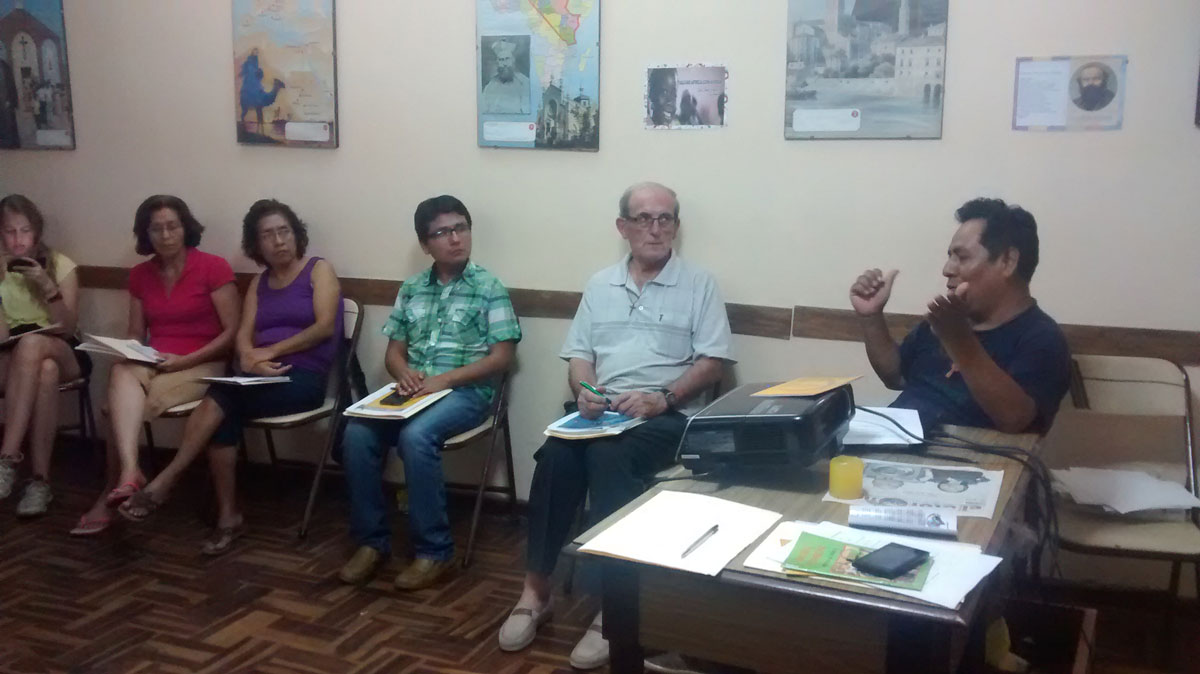 The Comboni Lay Missionaries of Peru have had in Lima the Annual Assembly in our headquarters in Chorrillos, from February 24 to 26. It was attended by 11 active members, two postulants and two Comboni priests. Among the assistants, two were from Arequipa and two from Trujillo.
The Comboni Lay Missionaries of Peru have had in Lima the Annual Assembly in our headquarters in Chorrillos, from February 24 to 26. It was attended by 11 active members, two postulants and two Comboni priests. Among the assistants, two were from Arequipa and two from Trujillo.



